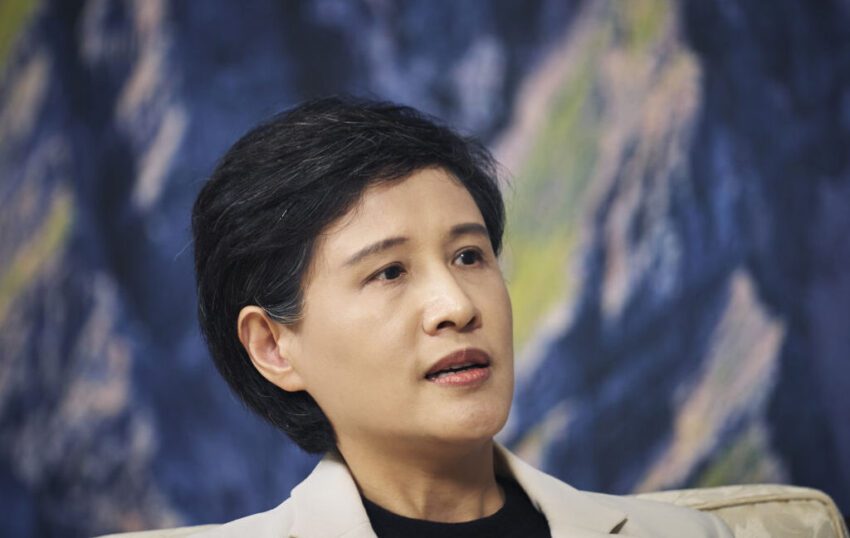
taiwan rejects trump s demand to shift Taiwan has firmly rejected demands from former President Donald Trump regarding the relocation of a significant portion of its semiconductor manufacturing to the United States.
taiwan rejects trump s demand to shift
Background on Semiconductor Manufacturing
The semiconductor industry is a cornerstone of modern technology, powering everything from smartphones to advanced military systems. Taiwan, particularly through its leading semiconductor manufacturer, Taiwan Semiconductor Manufacturing Company (TSMC), has become a global leader in chip production. The island’s advanced manufacturing capabilities have made it a critical player in the global supply chain, especially as nations increasingly recognize the strategic importance of semiconductors for both economic and national security.
In recent years, geopolitical tensions, particularly between the United States and China, have heightened concerns about supply chain vulnerabilities. The U.S. has been actively seeking to bolster its domestic semiconductor production to reduce reliance on foreign sources, particularly in light of potential threats from China, which has been ramping up its own semiconductor capabilities.
Trump’s Demands and U.S. Position
During a recent round of trade discussions, U.S. Commerce Secretary Howard Lutnick suggested that Taiwan was considering moving half of its semiconductor supply chain to the United States. This proposal was framed as a means for Taiwan to secure some form of protection from the U.S. amid ongoing threats from China, which has been increasingly assertive in its claims over Taiwan.
Trump, who has consistently emphasized the need for reshoring semiconductor supply chains, has argued that such a move is essential for both economic stability and national security. He has maintained that the U.S. must take proactive measures to ensure that critical technologies are produced domestically, reducing vulnerabilities associated with foreign dependencies.
Implications of the Proposal
The implications of such a demand are significant. If Taiwan were to shift a substantial portion of its semiconductor production to the U.S., it could potentially disrupt the existing supply chain and impact the global semiconductor market. Taiwan’s advanced manufacturing processes and expertise are not easily replicated, and moving operations could lead to delays and increased costs for companies reliant on these chips.
Moreover, the demand raises questions about Taiwan’s sovereignty and economic independence. Taiwan has long prided itself on its ability to navigate complex international relations, particularly in the face of pressure from China. Agreeing to such a condition could be perceived as yielding to external pressures, undermining Taiwan’s position in global affairs.
Taiwan’s Response
In response to the U.S. demands, Vice Premier Cheng Li-chiun made it clear that Taiwan has no intention of moving half its chip production to the U.S. Cheng stated that while “certain progress” has been made in trade talks, Taiwan has made “no such commitment” to shift its semiconductor supply chain. She emphasized that this issue was not discussed during the recent negotiations and that Taiwan would not agree to such a condition.
This firm stance from Taiwan reflects a broader strategy to maintain its competitive edge in the semiconductor industry while navigating the complex geopolitical landscape. Taiwan’s government has been proactive in seeking to strengthen its semiconductor capabilities, investing in research and development, and fostering partnerships with global technology firms.
Strategic Importance of Taiwan’s Semiconductor Industry
The semiconductor industry is not just a significant economic driver for Taiwan; it is also a vital component of the global technology ecosystem. TSMC, for instance, produces chips for major companies like Apple, NVIDIA, and Qualcomm. Any disruption in Taiwan’s production capabilities could have far-reaching consequences for the global tech industry, potentially leading to shortages and increased prices for consumers.
Furthermore, Taiwan’s semiconductor industry plays a crucial role in the U.S. tech landscape. Many American tech giants rely on Taiwanese chips for their products, making Taiwan an indispensable partner in the supply chain. The U.S. government has recognized this interdependence and has been working to strengthen ties with Taiwan to ensure a stable supply of semiconductors.
Reactions from Stakeholders
The reactions to Taiwan’s rejection of Trump’s demands have been varied. Industry experts and analysts have largely supported Taiwan’s decision, arguing that moving production to the U.S. would not only be logistically challenging but could also compromise the quality and efficiency of semiconductor manufacturing.
Many in the tech industry believe that Taiwan’s advanced manufacturing capabilities are unmatched, and relocating operations could lead to a decline in the quality of chips produced. The U.S. has been making efforts to bolster its domestic semiconductor industry, but replicating Taiwan’s expertise and infrastructure will take time and significant investment.
Domestic Implications for Taiwan
Domestically, Taiwan’s government faces the challenge of balancing international pressures with the need to maintain its economic independence. The semiconductor industry is a critical source of revenue and employment for the island, and any move that jeopardizes its stability could have significant economic repercussions.
Moreover, Taiwan’s government must navigate the delicate relationship with China, which views Taiwan as a breakaway province. Any perceived concessions to the U.S. could exacerbate tensions with China, leading to potential repercussions for Taiwan’s security and economic interests.
Future of U.S.-Taiwan Relations
The recent developments in U.S.-Taiwan relations highlight the complexities of navigating trade and security in an increasingly polarized global landscape. While the U.S. seeks to strengthen its ties with Taiwan to counter China’s influence, Taiwan must carefully consider its own strategic interests and the implications of any agreements.
As the global semiconductor landscape continues to evolve, Taiwan’s role as a leading manufacturer will remain critical. The island’s ability to maintain its competitive edge while managing international relations will be key to its future success.
Conclusion
Taiwan’s rejection of Trump’s demand to shift half of its chip manufacturing to the U.S. underscores the complexities of global trade and the strategic importance of semiconductors. As geopolitical tensions rise and nations seek to secure their supply chains, Taiwan’s semiconductor industry will remain a focal point of international discussions. The island’s commitment to maintaining its production capabilities while navigating external pressures will be crucial for its economic stability and sovereignty in the years to come.
Source: Original report
Was this helpful?
Last Modified: October 1, 2025 at 11:39 pm
0 views















